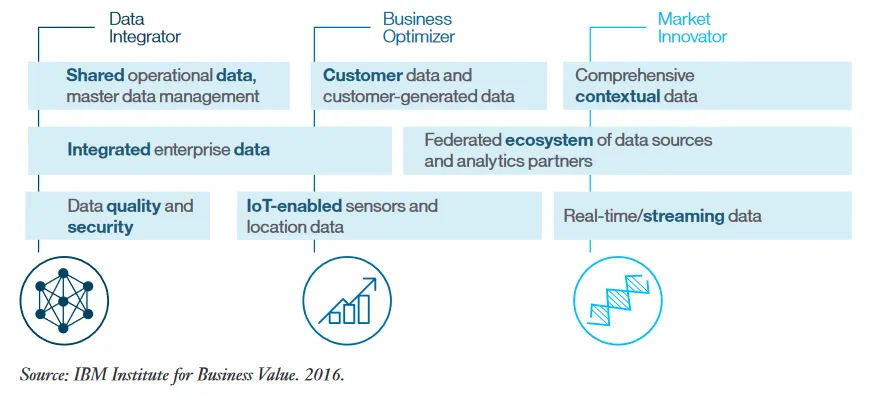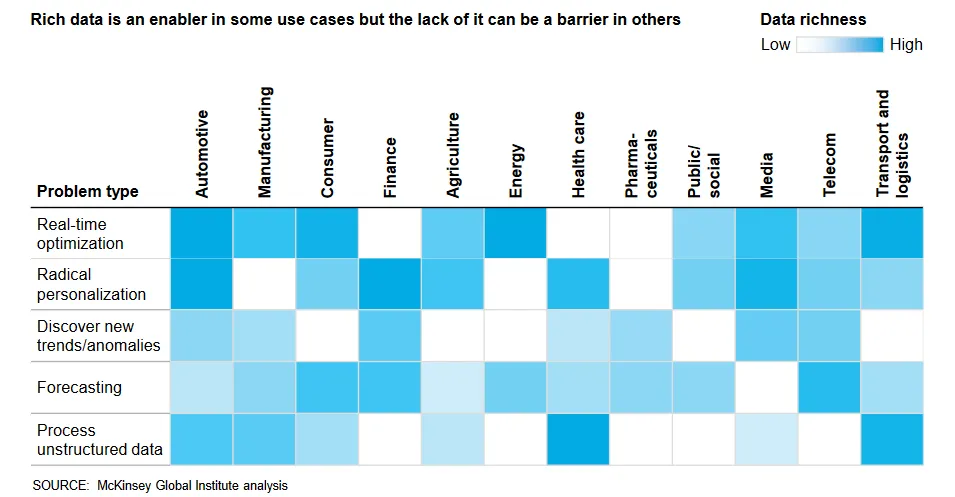At the turn of the century, the internet made remote learning a reality. Propelled by the advent of cloud computing and AI coupled with burgeoning global internet penetration, the e-learning market grew at an exponential rate and became a $200 billion behemoth in two decades. The coronavirus pandemic further created an unprecedented demand for e-learning among students, corporates, and healthcare professionals. In the next five years, the industry is expected to nearly triple in size.
At Sahaj, we believe it is no coincidence that data has been the backbone of not only the e-learning industry but every archetypal disruptive business that has emerged in the last few decades. As data-native disruptors transform every industry, businesses now face a pertinent question — how does one remain a step ahead? To answer this question, and to understand the nuances of data, we brought together CIOs from several industries for a roundtable conference. These were the key takeaways:
How Data Influences Business
Data can influence both business differentiation and business resilience. Data-backed insights enable improvement of existing offerings, quick roll out of new ones, and allow businesses to explore new revenue streams
The coronavirus pandemic has changed lives and subsequently, people’s behaviour. Footfall pattern in the UK has undergone a radical change. For advertisers, understanding and targeting out of home environments in this period of uncertainty requires access to clean, comprehensive data enabled by the intelligence of data science models.
Talon’s Ada platform, built in partnership with Sahaj, uses data science to provide insights that help businesses such as fast-food giant McDonald’s increase their footfall by a whopping 50%. British optical retail chain Specsavers used Ada to do an ambitious product launch using a behavioural targeting approach — 60% of store visitors were exposed to the campaign.
In a fast-changing world, data has proven to be a vital tool for adaptation.
Changing Ecosystem
The increasing use of data has inevitably changed the organizational ecosystem:
1. A shift in skills
There has been a repurposing of skills — quantitative analysts have evolved into data scientists and become commonplace in organizations with a strong customer and behaviour focus. The question is, what new set of skills will emerge in the future in this rapidly evolving space?
2. Business role to handle myriad functions of data
The CDO (Chief Data Officer) is responsible for underpinning the strategy and direction of the business using data and addressing gaps across data governance and management. Creating new business opportunities with existing data and providing insights on how data is being utilized in new business initiatives contribute to data-first thinking.

As data becomes ubiquitous within organizations, the role of a CDO has become indispensable. While in 2012, only 12% of Fortune 1000 companies had a CDO, by 2018, that percentage shot up to an impressive 67.9%.
According to a recent IBM study, organizations with a CDO are 1.3 times more likely to outperform peers.
Challenges of Data
Data has a lot of issues. While the right quality of data can do wonders for a business, its maintenance is a time-consuming and expensive process.

The other challenges with data are:
1. Mismatch between legacy environments & current data-centric systems
Instead of being a one-way flow between core systems and analytics, data now flows in a near real-time two-way loop between transactional systems and business insights. This requires a complete revamp of underlying technology platforms. This can be difficult to achieve in legacy environments that are technically complex to change.
2. Becoming data-driven is a slow process
Becoming data-driven requires a cultural change within an organization. Data needs to be a lot more visual and accessible to see wider adoption. It needs to be channelled such that it can provide tangible value and benefit. Not knowing how to ask the right question or not being able to answer the right question will only lead to data becoming a liability.
3. Data as the new currency
Can data be monetized? Can user share their personal data with organisations in exchange for value such as discounts or coupons, and can this become a norm across industries? As data literacy grows, it would be interesting to see how this plays out in the future.
Data as an ‘Open’ Entity
New regulations pertaining to open banking and finance in Europe have heralded a change in how data is viewed and impacts businesses.
‘Open data’ is becoming popular as democratising data can have wide-ranging applications.
Most advanced AI/ML techniques require a lot of data. However, datasets are locked away within enterprises and more importantly, contain personal information such as health/medical data. As a result, innovation in the health space using ML is limited. This is driving application of sophisticated technologies and algorithms to create privacy preserving techniques to share data without revealing individual’s details.
Our View
At Sahaj, we believe that big data and machine learning will become more accessible with mature tooling, languages, and frameworks. There will be an even greater emphasis towards real-time decision-making using data to cater to the new-age customer. New patterns of user interfaces will alter user experience. This will require adopting relevant practices in the data science world. ML Ops, Data Ops, and related fields will gain prominence.
A blend of traditional engineering and data/learning-algorithm management will emerge as a key skill. Issues related to ethics, privacy and ownership will continue to surface as data literacy grows. Areas of management will expand to address data quality, bias and observability. Data and data science will become essential tools of building smarter, more intelligent products, and consequently, become embedded in the culture of an organization.



